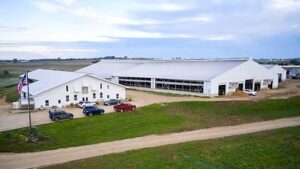Securing your farm’s legacy through estate planning
Not many farmers look forward to estate planning. But the process plays a massive role in protecting valuable farm assets and property for both farmers and farm business owners. A strong farm succession plan should include key components that preserve an estate for future generations.
Farm transition or succession planning can start at any time, while an estate plan only takes effect after the passing of the primary business owner. Estate planning compiles the documents needed to secure the family farm’s future and outlines how assets will transfer to a successor. This step becomes especially important when heirs and other family members share responsibility in the operation.

What goes into a good farm estate plan?
Proactive estate planning starts early and brings significant financial benefits. It helps reduce estate and income taxes during the transfer of assets to heirs or non-family successors. It also lowers the risk of farm assets falling “in legal limbo” and eases the financial burden on family members. In addition to setting realistic timelines for asset transfer, an estate plan should include:
-
Major roles such as beneficiaries, guardians, and executors
-
Wills
-
Trusts
-
Power of attorney (medical and financial)
-
Beneficiary forms and designations
-
Life insurance
“Being organized is critical to creating a successful farm succession plan,” said George Schein, Technical Director with Nationwide Retirement Institute and a 6th-generation farmer. “No one ever wants to think about what happens after they pass away.
But having the conversation and getting started on your estate plan early on can make the process easier than when a loved one is ill or near the end of life.”
Common challenges in the estate planning process
The value of farm assets and dividing them up among successors and heirs is often a major challenge in creating an estate plan. Dividing up assets equitably doesn’t always mean everything is equal. “Fair isn’t always equal, and vice versa,” Schein said. “In planning how assets will be passed to the farm’s next generation, make sure they’re in the right hands for whatever the operation’s future holds.”
If it will remain a working farm, the estate plan will be structured differently than if farm assets are liquidated.
Involve the right people in estate planning
Building an estate plan hinges most on having the right people engaged in the process. Any family members or non-family heirs who will one day be a farm’s successors should have a seat at the table. In addition to an estate planning attorney who is familiar with a farm operation, farm team members like farm insurance partners, accountants and financial advisors should be involved.
“Although estate planning for farmers entails a sequence of business decisions, the decisionmakers are also family members, which often means those decisions may be impacted by a lot of emotionally complex relationships. And it should, because in many cases, it’s about sustaining a farm family legacy.
That’s why it’s always good to involve family members who have a vested interest in the farm’s future,” Schein said. “Planning ahead well in advance can help take some of the emotion out of the process. That way, you can move forward with confidence when the need arises.”
To learn more, contact the Frost / Beck Insurance Agency. Call us at 419-592-4476, send an email to frost@frostins.com, or click here to submit your request today! Alternatively, stop by and see us at one of our four convenient locations in Archbold, Napoleon, Holgate, or Whitehouse.


